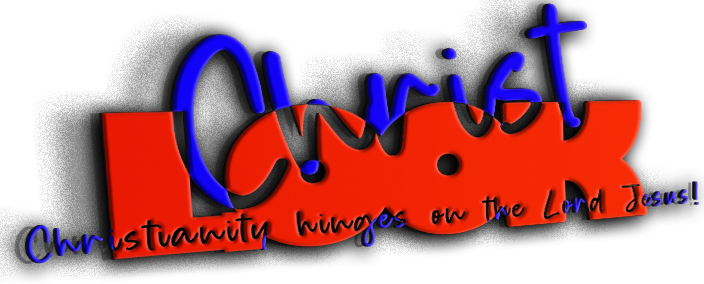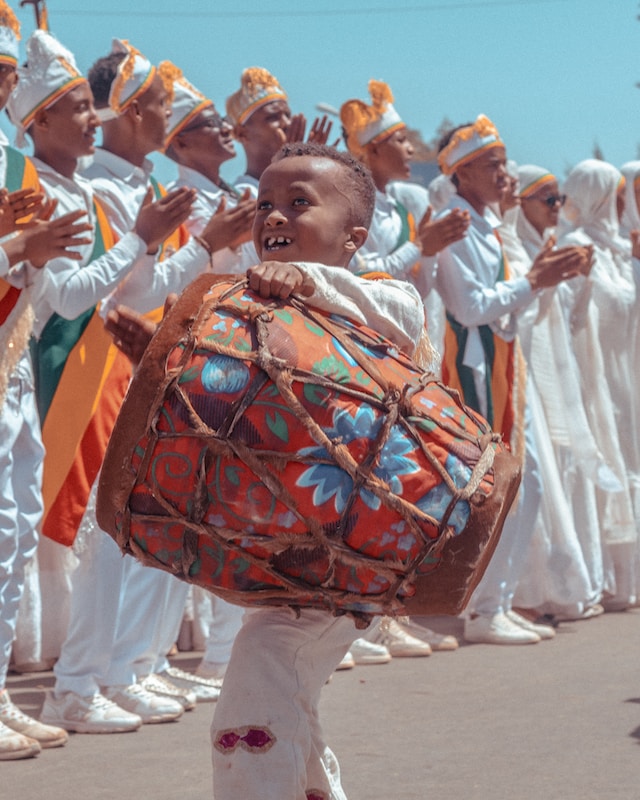Ethiopian Holidays
Ethiopia differs from the rest of the world in that Ethiopians use their own calendar and observe regular holidays. Ethiopian holidays celebrations are vivid and colorful events that often span several days and revolve around religion. Meskel, Christmas, Timkat, Kiddus Yohannes, and Easter are among the most important Christian holidays. Other well-known festivals include Irreechaa and Ashenda.
Table of Contents
Today is a holiday here in Ethiopia. The whole country celebrates Genna called Ethiopian Christmas. This Holy Day is one of the most important Ethiopian holidays, uniting Ethiopian Christians of various ideologies, particularly Protestant and Orthodox.
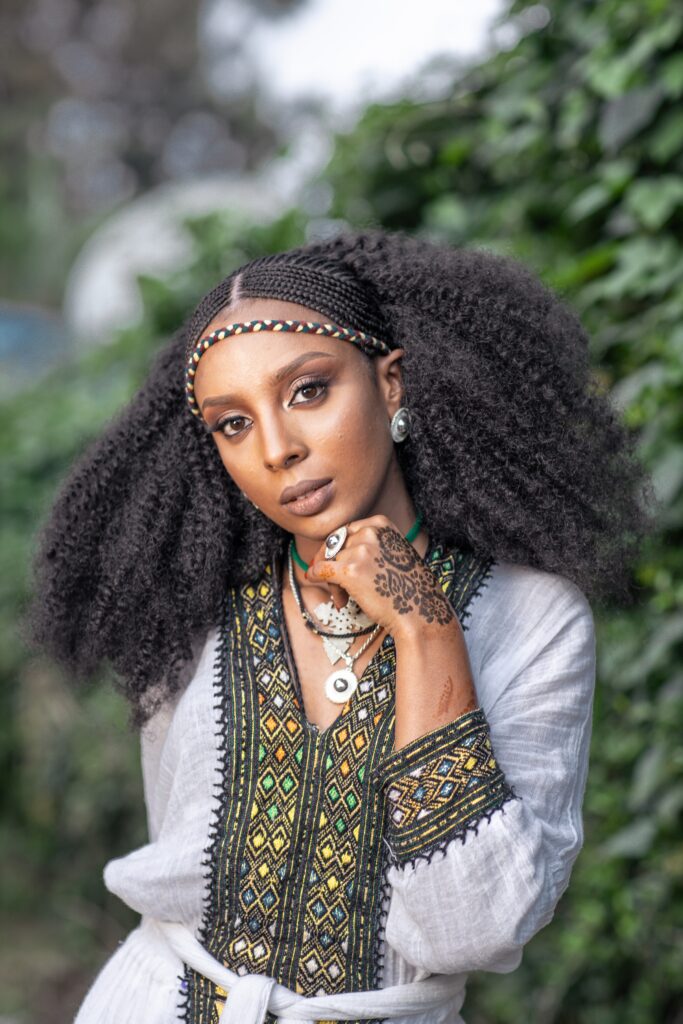
Ethiopian Holidays; Genna (Christmas)
The holy day have been celebrated on January 7th, commemorating the birth of Jesus Christ. It follows the Ethiopian Orthodox calendar, which is seven to eight years behind the Gregorian calendar.
Before the holy day begins there will be 43 days of fasting, known as “Ye Genna Tsom” or “Tsome Nebiyat,” just to commemorate the wait for the fulfillment of the promise of Jesus’ birth.
On the Eve, bonfires illuminate villages and cities, signifying the light of Christ entering the world. The festive event is marked by elaborate feasts featuring traditional dishes such as “doro wat” (spicy chicken stew) and “injera” (flatbread).
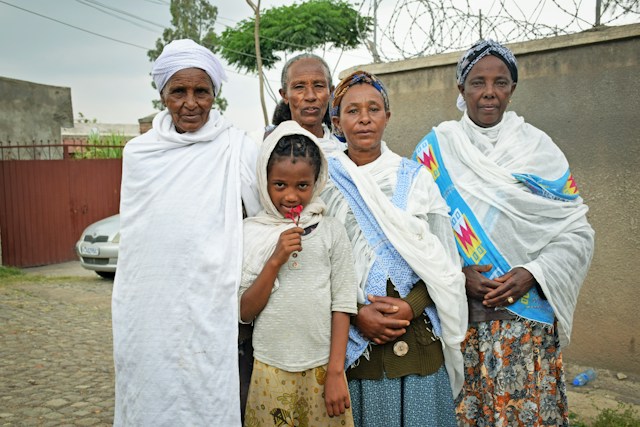
Grand processions carrying beautifully decorated replicas of the Ark of the Covenant (“tabots”) snake through streets on Genna, accompanied by chants, hymns, and the rhythmic beat of drums.
However, we discussed Gena for it is celebrated today, we Ethiopians have other mega holidays like the Ethiopian Epiphany(Timket ) and Feast of the Holy Cross (Meskel).
Ethiopian Holidays; Timkat (Epiphany)
Timkat has been celebrated on January 19th, to commemorate Jesus Christ’s baptism in the Jordan River. It’s a beautiful and colorful festival that draws huge audiences from all around the country.
The United Nations Educational, Scientific and Cultural Organization (UNESCO) inscribed TIMKET, Ethiopian Epiphany, on the List of Representatives of the Intangible Cultural Heritage of Humanity.
According to UNESCO, an inscription of Timiket festivity on the Representative List could enhance the visibility of intangible cultural heritage and promote intercultural dialogue among the multi-ethnic population of Ethiopia and other communities globally.
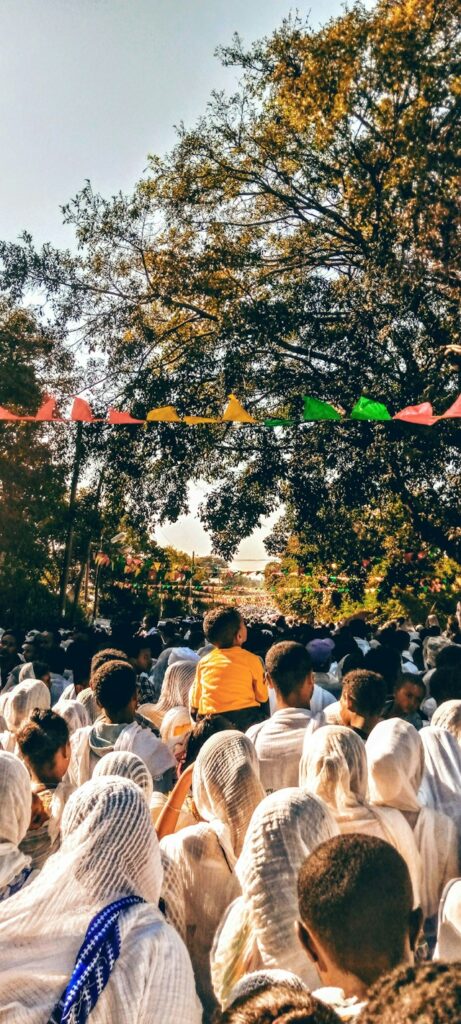
Artificial ponds or rivers are constructed in towns and communities to represent the Jordan. Priests in white robes lead elaborate processions carrying “tabots” with colorful umbrellas and crosses.
It is believed that the water is blessed at the designated “Jordan,” and thousands of faithful immerse themselves in the holy water in search of purification and regeneration.
The day concluded with festive feasts, traditional music and dance performances, and a sense of merriment. But this holy day is separately celebrated by orthodox Christians.
Ethiopian holidays; The Feast of the Holy Cross, also known as Meskel.
This holiday is celebrated On September 27th (28th in leap years), Specifically as orthodox Christian myth, Meskel remembers Saint Helena, mother of Roman Emperor Constantine the Great, discovering the True Cross.
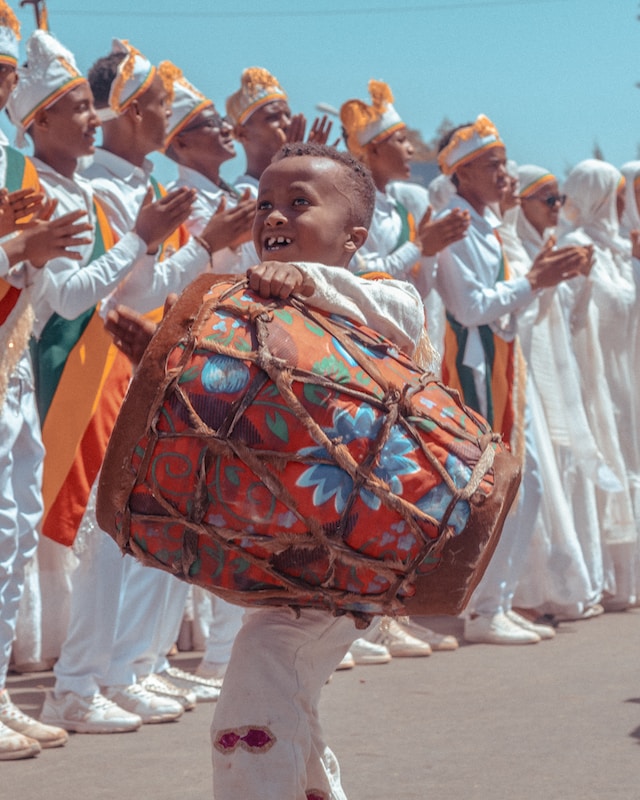
Ethiopian Holidays
Meskel’s highlight is the blazing of large bonfires called “demera,” which are built in the shape of crosses. People chant and dance around the bonfires while carrying decorated torches known as “shekole.”
Meskel also commemorates the Forty Martyrs of Sebaste, who were frozen to death because of their Christian religion. The bonfires represent their arduous experience and unshakable faith.
After the bonfires are burned, communities assemble for feasts and festivities, exchanging traditional food and drinks.
All three of the most important holidays, however, are ignored by most Christians, who instead focus on Jesus. His birth, baptism, death, and resurrection.
Unfortunately, most Christian people in Ethiopia today drink and may fight while celebrating the birth of Jesus, the Lover, the Savior, and the Lord.
Such activities are not appropriate for this festival, yet they have been conducted in the past.
”For I do not want you to be ignorant of the fact, brothers and sisters, that our ancestors were all under the cloud and that they all passed through the sea. 2 They were all baptized into Moses in the cloud and in the sea. 3
They all ate the same spiritual food 4 and drank the same spiritual drink; for they drank from the spiritual rock that accompanied them, and that rock was Christ. 5 Nevertheless, God was not pleased with most of them; their bodies were scattered in the wilderness.
6 Now these things occurred as examples to keep us from setting our hearts on evil things as they did. 7 Do not be idolaters, as some of them were; as it is written: “The people sat down to eat and drink and got up to indulge in revelry.” 1 Corinthians 10:1-7
